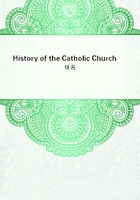
第45章
See works mentioned above (II. a). Dandliker, /Geschichte der Schweiz/, 3 Bde, 1904. Dandliker-Salisbury, /A Short History of Switzerland/, 1899. De Haller, /Histoire de la revolution religieuse ou de la reforme protestante dans la Suisse occidentale/, 1837. Gelpke, /Kirchengeschichte der Schweiz/, 1856-61. Schuler-Schulthess, /Opera Huldrici Zwinglii/, 8 vols., 1828-42. Jackson, /Huldreich Zwingli/, 1901.
The territory now known as Switzerland formed portion of the Holy Roman Empire. In 1291, however, during the reign of Rudolph of Habsburg, the three states or cantons of Uri, Schweiz, and Unterwalden, formed a confederation to defend their rights and privileges, thus laying the foundation for the existence of Switzerland as an independent nation. Other cantons joined the alliance, more especially after the victory at Morgarten in 1315, when the Austrian forces despatched against the Swiss were almost annihilated. Austria made various attempts to win back the Swiss to their allegiance but without success, and in 1394 the independence of the allied cantons was practically recognised.
About the time of the Reformation in Germany Switzerland consisted of thirteen cantons and several smaller "allied" or "friendly" states not admitted to full cantonal rights. Though bound together by a loose kind of confederation for purposes of defence against aggression, the various states enjoyed a large measure of independence, and each was ruled according to its own peculiar constitution. The Federal Diet or General Assembly was composed of representatives appointed by the cantons, and its decisions were determined by the votes of the states, the largest and most populous possessing no greater powers than the least influential member of the confederation. Some of the states were nominally democratic in their form of government, but, as in most countries during this period, the peasants had many grounds for reasonable complaint, particularly in regard to taxation, treasury pensions, and the enlisting and employment of the Swiss mercenary troops, then the best soldiers in Europe.
As in Germany, many causes were at work to prepare the ground for the new religious teaching. On account of the free character of its institutions refugees of all kinds fled to Switzerland for asylum, and were allowed great liberty in propagating their views. Again, the Swiss mercenaries, returning from their campaigns and service, during which they were brought into contact with various classes and nations, served much the same purpose as does the modern newspaper. In both these ways the peasants of Switzerland were kept in touch with the social, political, and religious condition of the rest of Europe, and with the hopes and plans of their own class in other kingdoms.
Humanism had not, indeed, made very striking progress in Switzerland, though the presence of Erasmus at Basle, and the attacks that he directed against the monks and the clergy, could not fail to produce some effect on a people whose minds were already prepared for such methods by their acquaintance with modern developments.
If, however, the Church in Switzerland had been free from abuses not all the wit and eloquence of Erasmus and his followers could have produced a revolt, but unfortunately, the influences that led to the downfall of religion in other countries were also at work in the Swiss cantons. The cathedral chapters were composed for the greater part of men who had no vocation to the priesthood, and who adopted the clerical profession because they wished to enrich themselves from the revenues of the Church, and were ensured of good positions through the influence of their relatives and patrons. Many of the clergy were far from being perfect, nor were all the religious institutions mindful of the spirit or even of the letter of their constitutions.
Unfortunately, too, owing to the peculiar political development of their country, the bishops of Switzerland were subject to foreign metropolitans, two of them being under the jurisdiction of the Archbishop of Mainz, two under Besancon, one under Aquileia, and one subject immediately to Rome. Partly for this reason, partly, also, owing to the increasing encroachments of the civil power, disputes and conflicts between the ecclesiastical and temporal jurisdictions were not unfrequent. But it would be a mistake to suppose that there were no good ecclesiastics in Switzerland at this time. There were many excellent priests, both secular and regular, who recognised the sad condition of affairs, and who supported measures such as those undertaken by the Bishop of Basle in 1503 with all their power. The great body of teachers known as the Friends of God were at work in Switzerland as in the Netherlands, and were doing splendid service for education, both secular and religious.